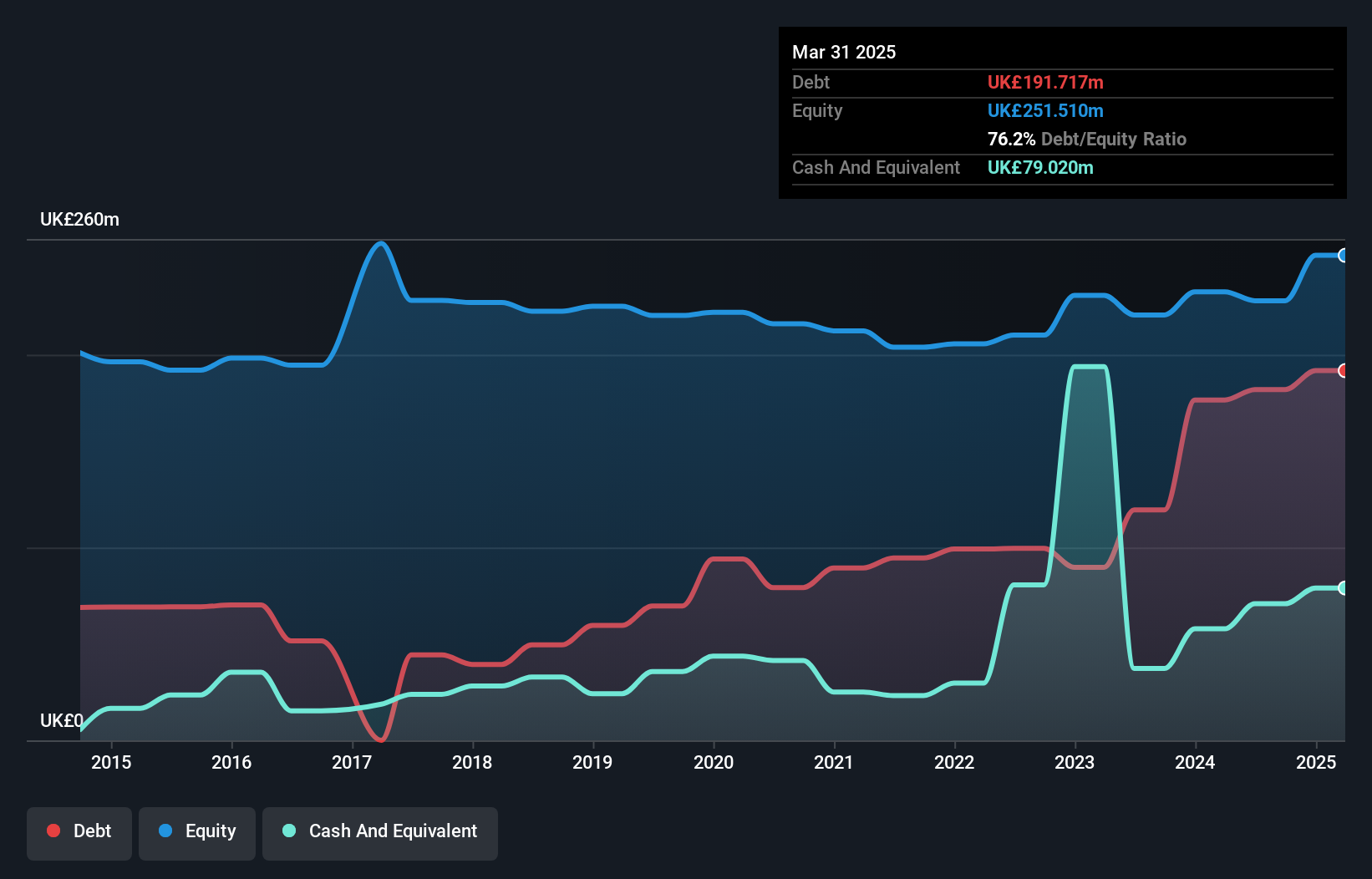- United Kingdom
- /
- Other Utilities
- /
- LSE:TEP
Here's Why Telecom Plus (LON:TEP) Can Manage Its Debt Responsibly
Warren Buffett famously said, 'Volatility is far from synonymous with risk.' When we think about how risky a company is, we always like to look at its use of debt, since debt overload can lead to ruin. We note that Telecom Plus Plc (LON:TEP) does have debt on its balance sheet. But the more important question is: how much risk is that debt creating?
When Is Debt Dangerous?
Debt is a tool to help businesses grow, but if a business is incapable of paying off its lenders, then it exists at their mercy. In the worst case scenario, a company can go bankrupt if it cannot pay its creditors. However, a more usual (but still expensive) situation is where a company must dilute shareholders at a cheap share price simply to get debt under control. Having said that, the most common situation is where a company manages its debt reasonably well - and to its own advantage. When we examine debt levels, we first consider both cash and debt levels, together.
How Much Debt Does Telecom Plus Carry?
You can click the graphic below for the historical numbers, but it shows that as of March 2025 Telecom Plus had UK£191.7m of debt, an increase on UK£176.5m, over one year. However, it does have UK£79.0m in cash offsetting this, leading to net debt of about UK£112.7m.

How Healthy Is Telecom Plus' Balance Sheet?
We can see from the most recent balance sheet that Telecom Plus had liabilities of UK£288.5m falling due within a year, and liabilities of UK£196.4m due beyond that. On the other hand, it had cash of UK£79.0m and UK£358.2m worth of receivables due within a year. So it has liabilities totalling UK£47.6m more than its cash and near-term receivables, combined.
Since publicly traded Telecom Plus shares are worth a total of UK£1.60b, it seems unlikely that this level of liabilities would be a major threat. However, we do think it is worth keeping an eye on its balance sheet strength, as it may change over time.
Check out our latest analysis for Telecom Plus
We use two main ratios to inform us about debt levels relative to earnings. The first is net debt divided by earnings before interest, tax, depreciation, and amortization (EBITDA), while the second is how many times its earnings before interest and tax (EBIT) covers its interest expense (or its interest cover, for short). The advantage of this approach is that we take into account both the absolute quantum of debt (with net debt to EBITDA) and the actual interest expenses associated with that debt (with its interest cover ratio).
Telecom Plus's net debt is only 0.78 times its EBITDA. And its EBIT covers its interest expense a whopping 12.2 times over. So you could argue it is no more threatened by its debt than an elephant is by a mouse. And we also note warmly that Telecom Plus grew its EBIT by 14% last year, making its debt load easier to handle. There's no doubt that we learn most about debt from the balance sheet. But it is future earnings, more than anything, that will determine Telecom Plus's ability to maintain a healthy balance sheet going forward. So if you're focused on the future you can check out this free report showing analyst profit forecasts.
Finally, a company can only pay off debt with cold hard cash, not accounting profits. So it's worth checking how much of that EBIT is backed by free cash flow. During the last three years, Telecom Plus produced sturdy free cash flow equating to 51% of its EBIT, about what we'd expect. This free cash flow puts the company in a good position to pay down debt, when appropriate.
Our View
Happily, Telecom Plus's impressive interest cover implies it has the upper hand on its debt. And the good news does not stop there, as its net debt to EBITDA also supports that impression! We would also note that Integrated Utilities industry companies like Telecom Plus commonly do use debt without problems. Looking at the bigger picture, we think Telecom Plus's use of debt seems quite reasonable and we're not concerned about it. After all, sensible leverage can boost returns on equity. The balance sheet is clearly the area to focus on when you are analysing debt. But ultimately, every company can contain risks that exist outside of the balance sheet. Case in point: We've spotted 2 warning signs for Telecom Plus you should be aware of, and 1 of them can't be ignored.
If, after all that, you're more interested in a fast growing company with a rock-solid balance sheet, then check out our list of net cash growth stocks without delay.
Valuation is complex, but we're here to simplify it.
Discover if Telecom Plus might be undervalued or overvalued with our detailed analysis, featuring fair value estimates, potential risks, dividends, insider trades, and its financial condition.
Access Free AnalysisHave feedback on this article? Concerned about the content? Get in touch with us directly. Alternatively, email editorial-team (at) simplywallst.com.
This article by Simply Wall St is general in nature. We provide commentary based on historical data and analyst forecasts only using an unbiased methodology and our articles are not intended to be financial advice. It does not constitute a recommendation to buy or sell any stock, and does not take account of your objectives, or your financial situation. We aim to bring you long-term focused analysis driven by fundamental data. Note that our analysis may not factor in the latest price-sensitive company announcements or qualitative material. Simply Wall St has no position in any stocks mentioned.
About LSE:TEP
Proven track record with adequate balance sheet.
Similar Companies
Market Insights
Community Narratives



